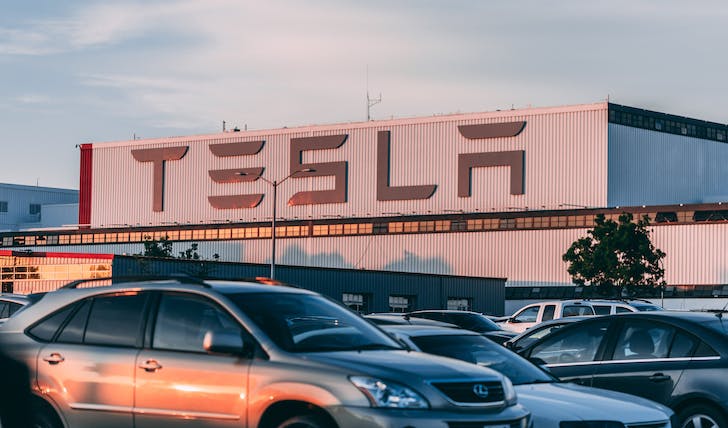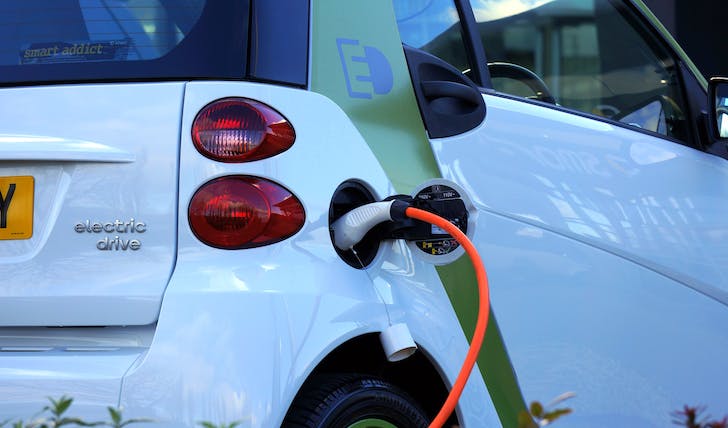
As Automakers Follow Tesla’s “Gigacasting,” Toyota Is Charting A Different Path

The electric vehicle (EV) sector is experiencing a paradigm shift, with major automakers redefining their manufacturing processes to stay competitive. Tesla, under the visionary leadership of Elon Musk, has been at the forefront with its gigacasting technology since 2020.

Roger / Pexels / While many in the industry are quick to follow Tesla’s lead, Toyota, the world’s leading automaker in 2023, is charting a divergent course.
The world’s largest automaker is approaching the EV race with a more conservative strategy.
Tesla’s Disruptive Manufacturing Technique: Gigacasting
Gigacasting is a revolutionary manufacturing process introduced by Tesla, involving the use of large-scale casting machines to create significant parts of a vehicle’s chassis in a single piece. This innovation has been a major factor in Tesla’s efficiency and cost-reduction strategies.

Craig / Pexels / Since 2020, Tesla has been dominating the auto industry with its EV-centric approach.
Starting with the Model Y, Tesla’s embrace of gigacasting has not just optimized its production but also set a new trend in the automotive manufacturing sector.
The Industry’s Pivot Towards Tesla’s Approach
The impact of Tesla’s gigacasting is evident across the industry. General Motors (GM) has announced plans to incorporate similar “giga press” machines by 2025, a move clearly influenced by Tesla’s strategy. Volvo, too, is preparing to adopt casting processes for its upcoming EV models.
These developments reflect a growing industry trend towards streamlined, efficient production methods. And of course, largely inspired by Tesla’s pioneering approach.
Toyota’s Deliberate Journey in the EV Transition
Amidst this industry-wide rush towards gigacasting, Toyota’s strategy stands out. Despite being the top automaker in terms of sales in 2023, Toyota is not rushing into mass-producing EVs using gigacasting technology. Instead, Toyota is focusing on a gradual integration of this method, balancing the new with its existing, time-tested production techniques.
This decision underscores Toyota’s commitment to a cautious, yet solid approach to adopting new technologies.
Adapting Lessons from Tesla, Carving Its Own Path
Toyota’s approach to EV production and gigacasting is marked by a recognition of Tesla’s advancements, yet a clear intention to avoid simply copying these methods. This strategy is indicative of Toyota’s commitment to maintaining its unique identity and ensuring that any new technology fits seamlessly with its established production culture.

Mike / Pexels / In October 2023, Toyota asserted that its fully electric vehicles are not yet ready for mass adoption.
This distinct approach demonstrates the varied responses within the industry to the EV revolution, underscoring the idea that there is no one-size-fits-all solution.
The Spectrum of Strategies in EV Manufacturing
The transition to EVs in the automotive industry showcases a wide range of strategies. While companies like Tesla and GM are quickly adopting gigacasting, Toyota’s more measured approach highlights the diversity in paths toward achieving the same goal.
Toyota’s strategy is a testament to the notion that careful and gradual adaptation of new technologies can be just as effective as rapid adoption.
Parting Thoughts
In the dynamic arena of EVs, Toyota’s cautious yet strategic approach amidst the industry’s race towards gigacasting presents a compelling narrative. This diversity in approaches is not merely a challenge. It is an opportunity. Something that illustrates the multiple pathways through which automakers can transition to electric vehicles.
As the race intensifies, the automotive sector stands to gain from this variety, with each approach shaping the future of automotive technology in its unique way.
More in Business
-
`
The Unique Tradition of the SAG Awards: No Hosts!
The Screen Actors Guild (SAG) Awards, a prestigious event in the entertainment industry, has a unique tradition that sets it apart...
March 9, 2024 -
`
Essential 2024 Startup Know-How for Women | Beginning Your Business Journey
Forget the tired trope of the lone wolf entrepreneur. Today, women are shattering glass ceilings and redefining what it means to...
February 27, 2024 -
`
Microsoft and OpenAI Sound Alarm Over AI Hacking
A recent joint study by Microsoft and OpenAI raises concerns as it unveils attempts by state-backed hacker groups to exploit AI...
February 25, 2024 -
`
Invest with Confidence: Identifying 5 Key Company Traits for Success
When investing hard-earned money in stocks, we all want the reassurance that comes from placing bets on reliable horses. But how...
February 15, 2024 -
`
Roger O’Donnell’s Heartfelt Message to Morrissey Amidst ‘Medical Supervision’
When news broke that Morrissey, the iconic frontman of The Smiths, was placed under “medical supervision for physical exhaustion,” the music...
February 10, 2024 -
`
Six Flags and Cedar Fair Merger: A Thrilling Venture Under DOJ Scrutiny
Picture this: two giants of the amusement park world, Six Flags Entertainment and Cedar Fair, coming together in a colossal merger,...
February 3, 2024 -
`
A Peek Inside NASA’s Latest Supersonic Aircraft, the X-59
In the annals of aviation, breaking the sound barrier has always been a loud affair. But NASA, in partnership with Lockheed...
January 22, 2024 -
`
The Easiest Personal Loans to Secure Your Financial Freedom in 2024
Embarking on a journey toward financial stability often requires a helping hand, and personal loans emerge as versatile allies in this...
January 21, 2024 -
`
Emily Atack Baby Joy: A Peek into Her Life with Boyfriend Dr. Alistair Garner
New beginnings and a tiny miracle: The year 2024 has kicked off with a beautiful surprise for fans of Emily Atack,...
January 10, 2024














You must be logged in to post a comment Login